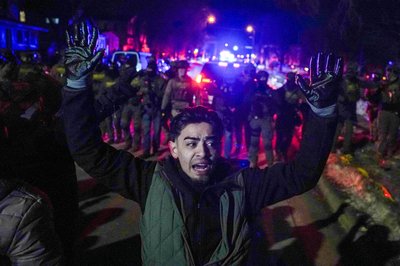NOTE: If you are short on time, watch the video and complete this See, Think, Wonder activity: What did you notice? What did the story make you think about? What would you want to learn more about?
SUMMARY
The search for more than 100 people still missing from the catastrophic July 4 flash floods in Texas began its second week Saturday. Officials have rejected suggestions that the calamity could have been anticipated, but an analysis by NPR and PBS Frontline suggests otherwise. John Yang speaks with Laura Sullivan, an NPR investigative correspondent, to learn more.
View the transcript of the story.
News alternative: Check out recent segments from the NewsHour, and choose the story you’re most interested in watching. You can make a Google doc copy of discussion questions that work for any of the stories here.
WARM-UP QUESTIONS
- Who failed to report that the camp area was at a higher risk of flooding?
- What were the findings of private companies vs FEMA?
- Where in FEMA's program does it need funding from Congress to perform at the level of private companies?
- When did FEMA grant the request for multiple buildings to be pulled out of the floodplain?
- Why is the there pushback for FEMA to receive funding to do mapping of the floodplains?
FOCUS QUESTIONS
How can experts use this tragedy as an opportunity to encourage more dialogue where politicians listen to experts and communities alike?
Media literacy: What perspectives are missing in this segment?
WHAT STUDENTS CAN DO
- Research your neighborhood's flood risk — what measures are in place to prevent danger?
- Research institutions and organizations in your area that exist to help people in emergencies. What might they need to be more effective?
Written by Kevin Roodnauth, PBS News Hour Classroom's intern and senior at Amherst College, and News Hour's Luke Gerwe.
Fill out this form to share your thoughts on Classroom’s resources.





